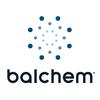The Dairy Herd informs us that in early May 2016 international milk prices slipped, diminishing hopes that prices were beginning to recover after two consecutive auctions with gains. The fortnightly Global Dairy Price auction showed that prices had dipped 1.4 percent to USD 2,203 per ton. A total of 20,615 tons was sold at the latest auction, falling 2.8 percent from the previous one.
Even if analysts said that the news was not all bad, especially for New Zealand, the European dairy situation is still challenging. Also, low milk prices are the main challenge. The fact of the matter is that farmers commonly deal with low milk prices more frequently than adequate or good milk prices. Consequently, the first elements to be pulled out from the rations to reduce production costs until prices improve are feed additives.
However, yeast supplementation is always important, especially when prices are down. Yeast helps with support and improvement of feed efficiency, which means a higher quantity of milk produced for the same quantity of feed, or the same quantity of milk for less feed. Either way, the return over feed cost is improved. More specifically, the European market is facing a too-high supply due to overproduction volumes following the end of milk quotas. The main current desire is consequently not to produce more milk, but to reduce feed cost for the same milk quantity and to increase milk price with the milk of better quality (fat and protein rates). Yeast feeding also helps with rumen stability particularly during environmentally challenging periods (heat stress, transition periods, etc.). Also, while there is a cost to yeast supplementation (around EUR 0, 03/head/day in dairy cows for RumenYeast®), the returns have repeatedly been demonstrated and reported, both by the research and on-farm trials. Moreover, since it is not uncommon for ration parameters to change when milk prices are low (pressure to reduce ration costs resulting in a lower ration quantity), feeding yeast can help maintain and improve rumen function when the quality of a proper ration may be compromised. Regarding veterinarian and medicine expenses, the reduction of these costs due to the use of a natural solution with acceptable price should not be taken lightly.
In any case, RumenYeast® and Hilyses® will always bring benefits regarding the quantity of milk produced and milk quality (fat and protein rates) and health status and animal welfare. The extra investment will be quickly profitable.














